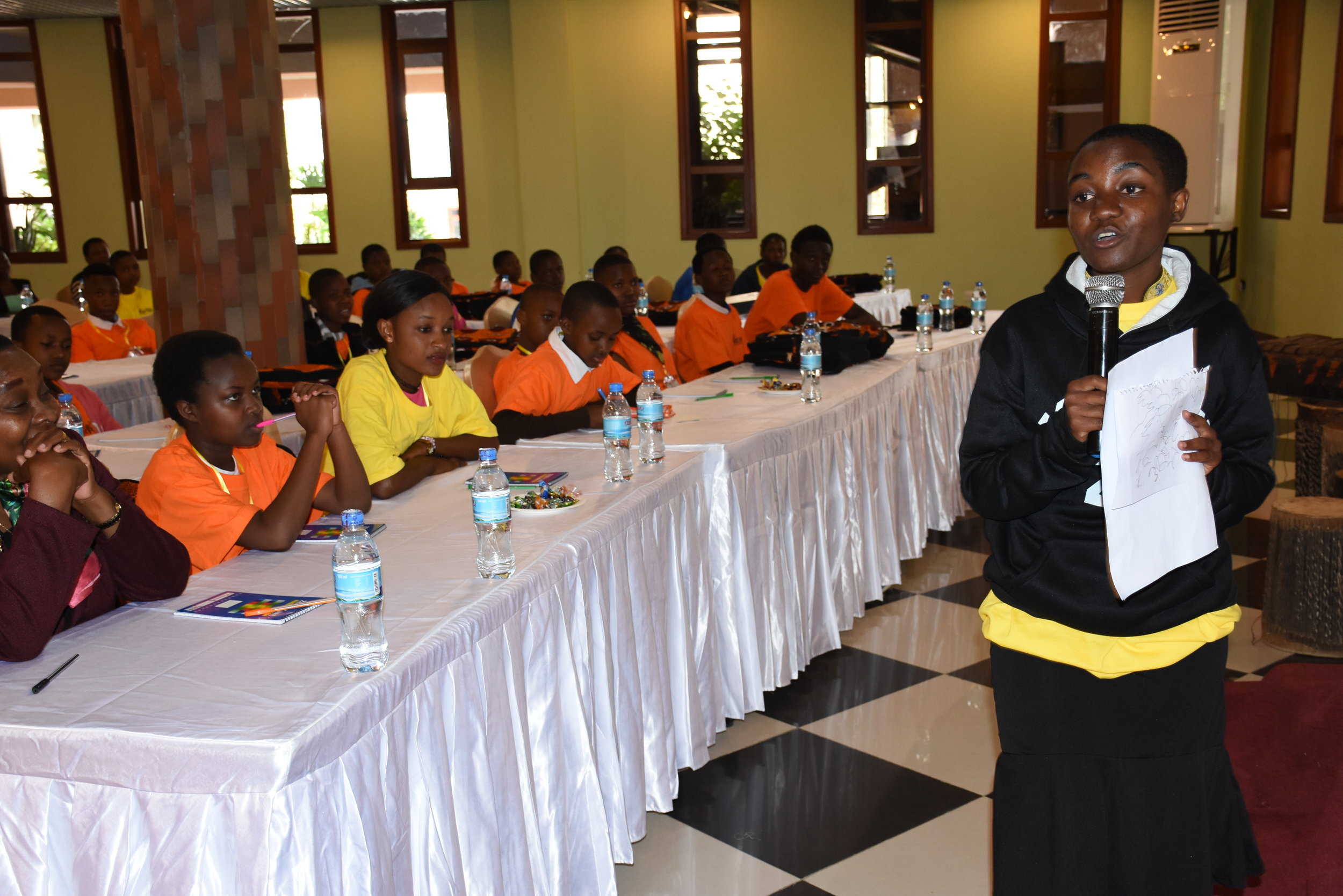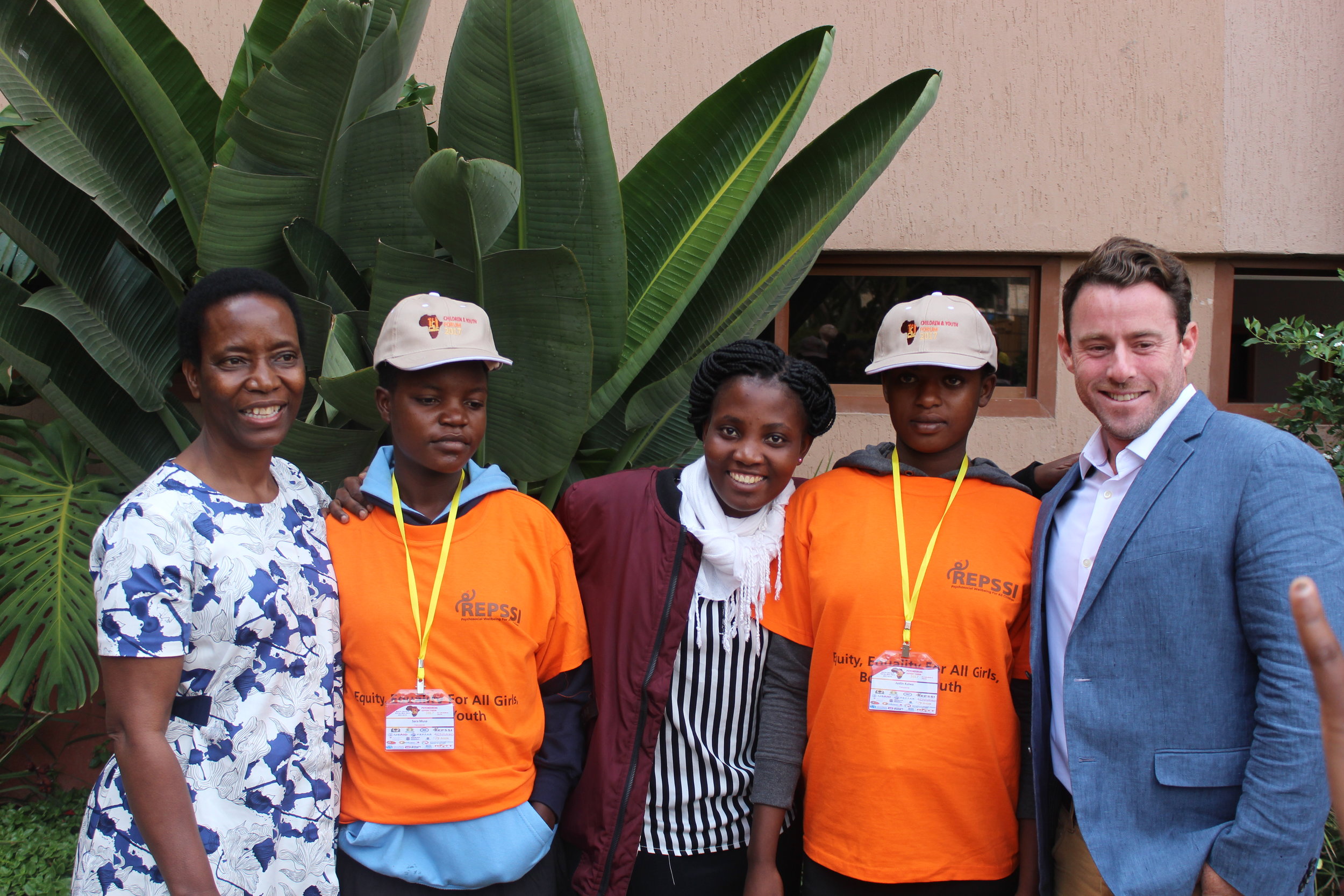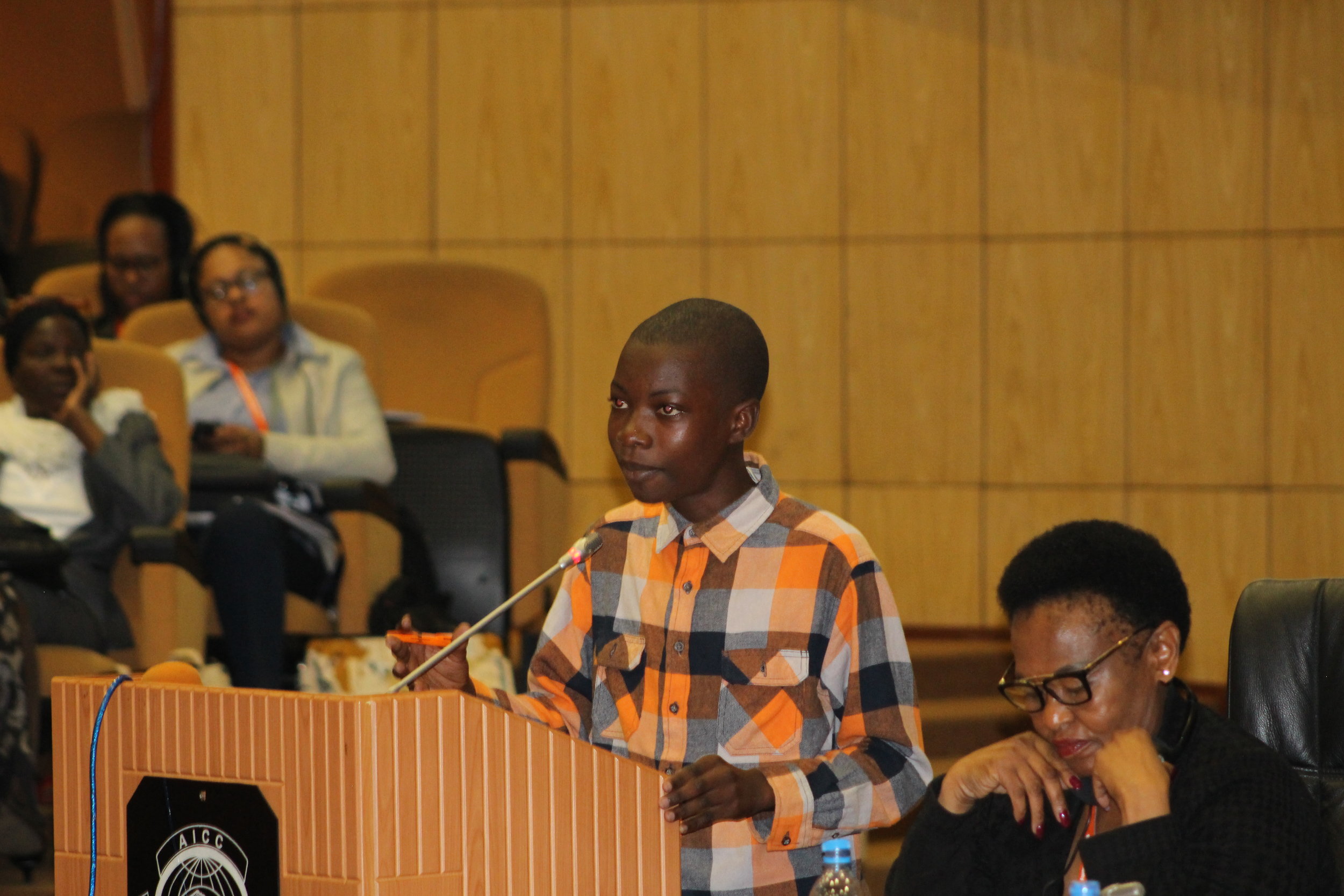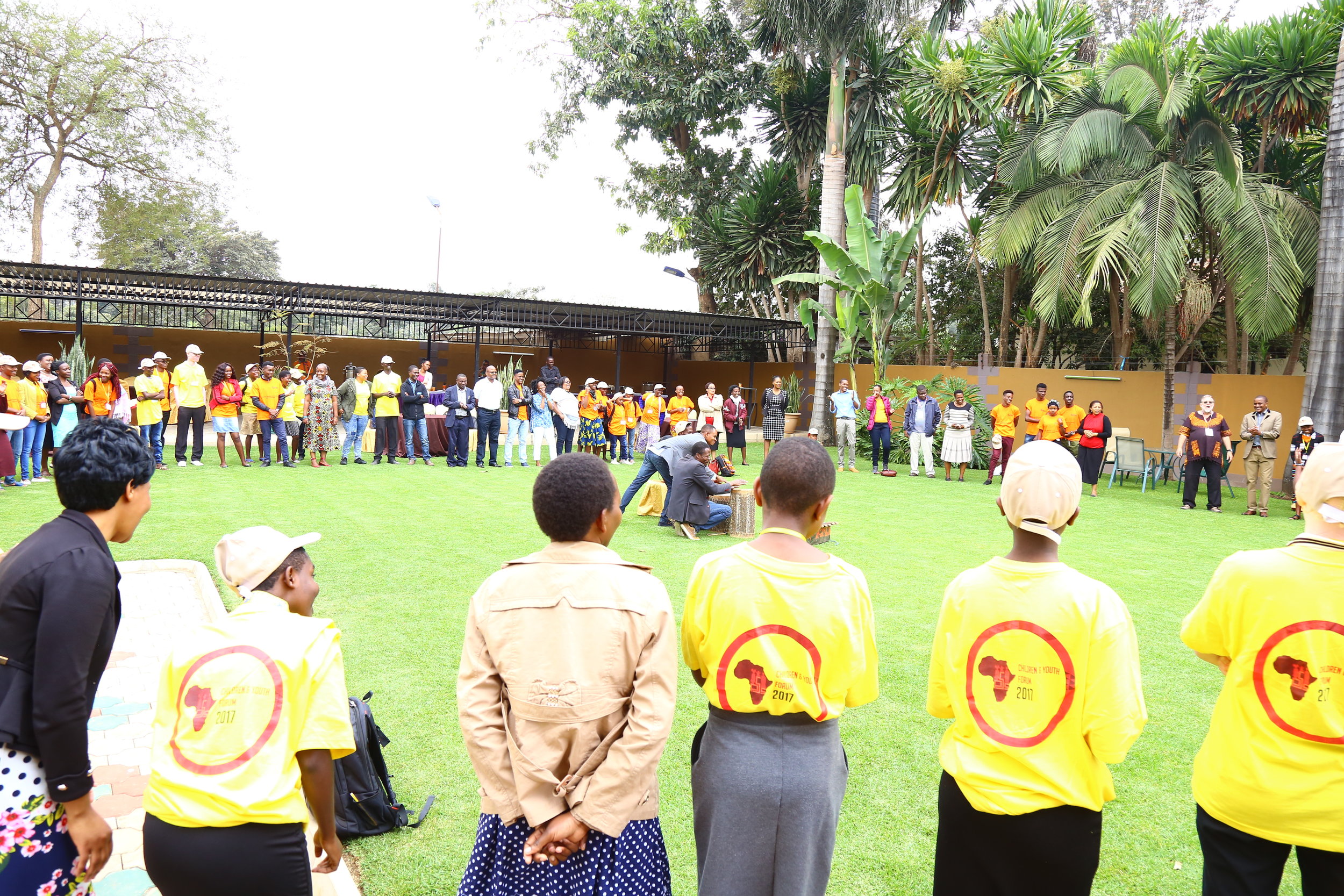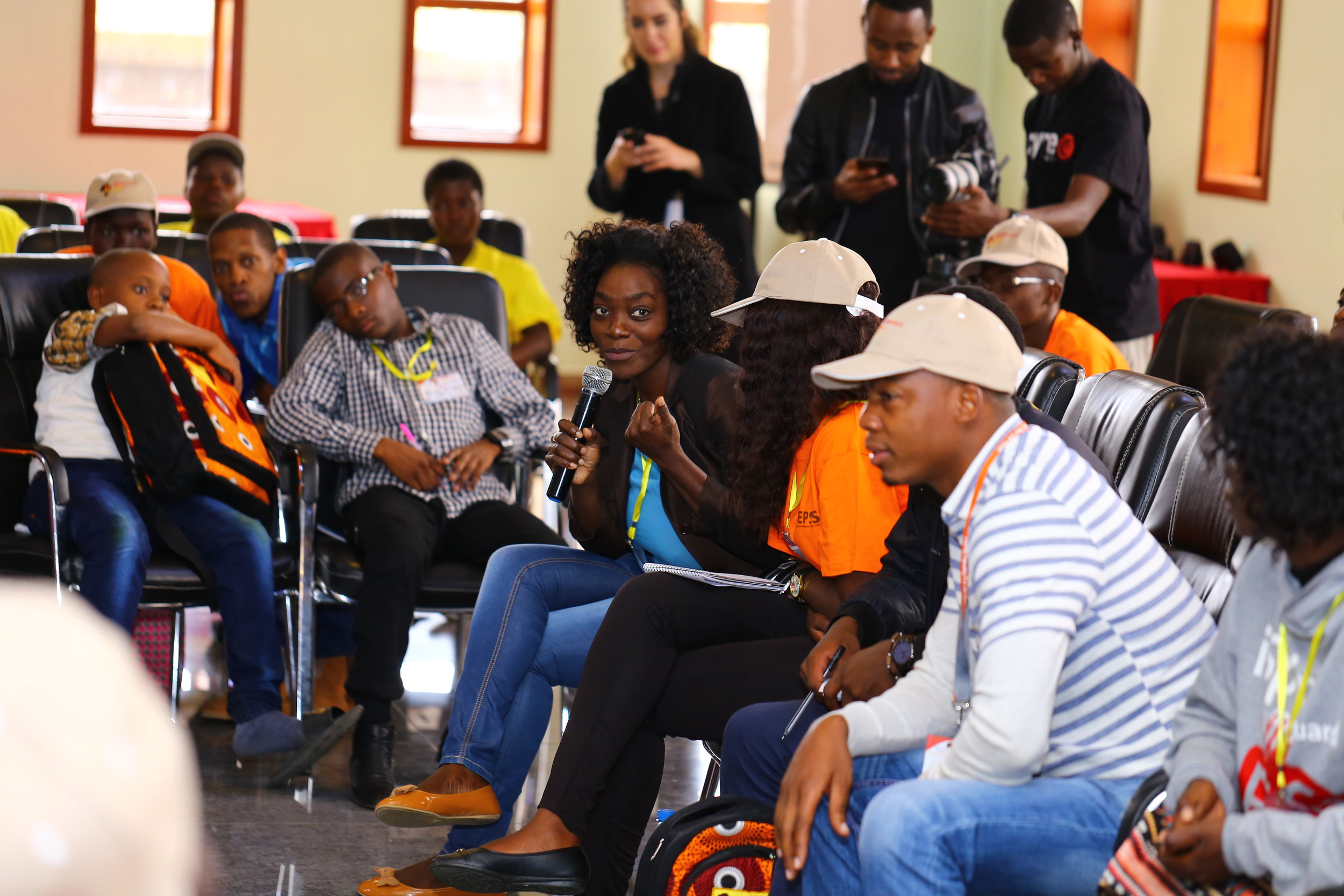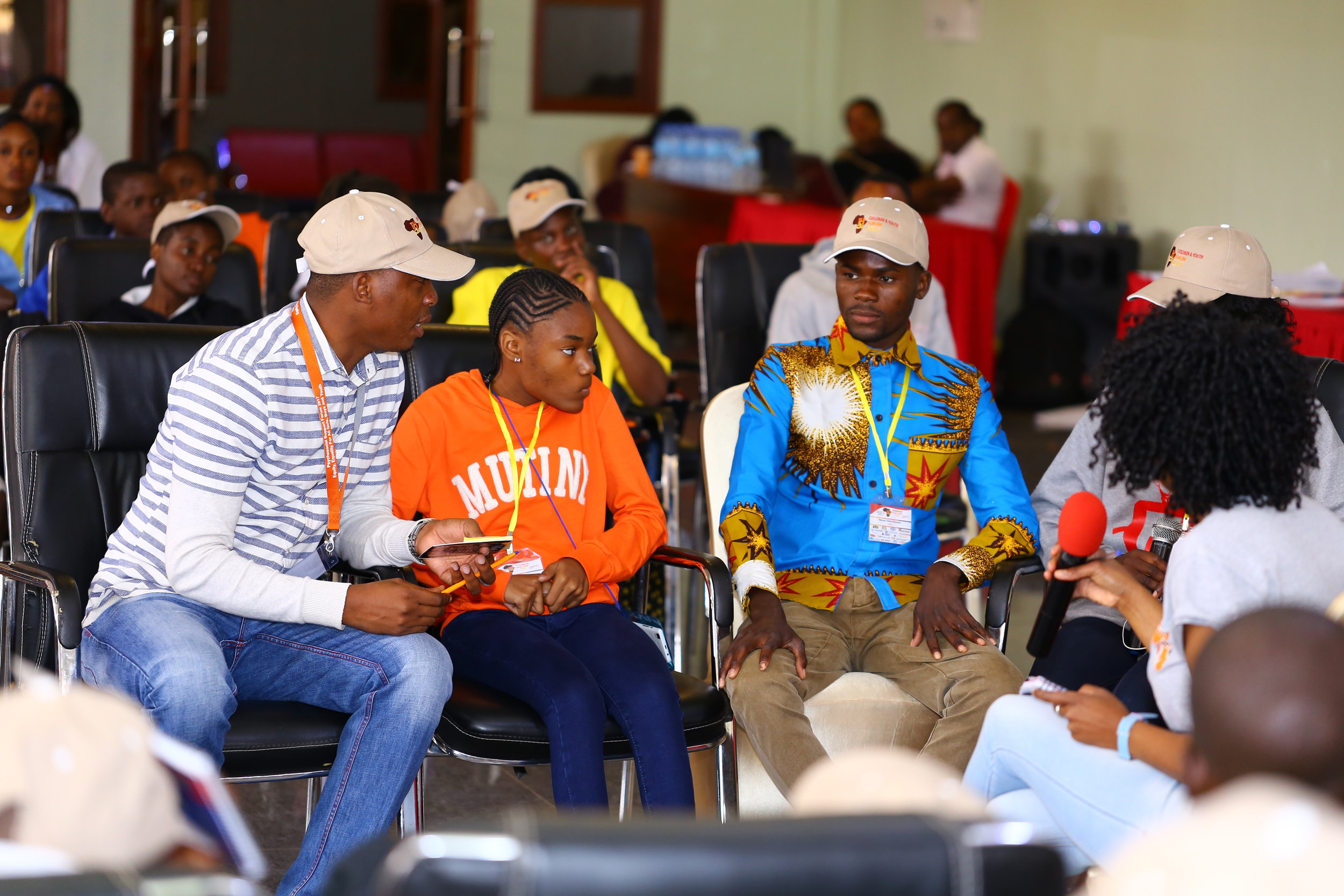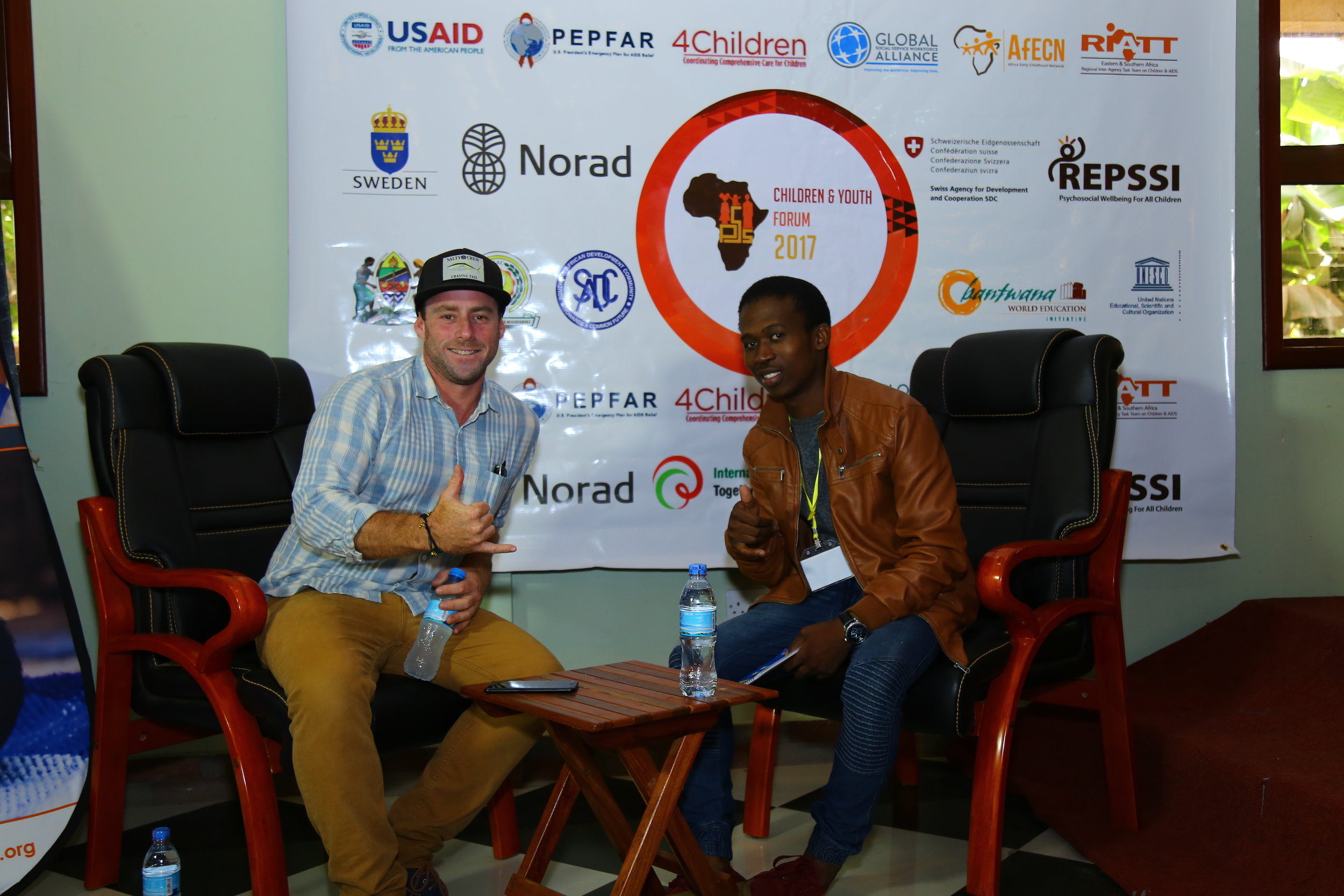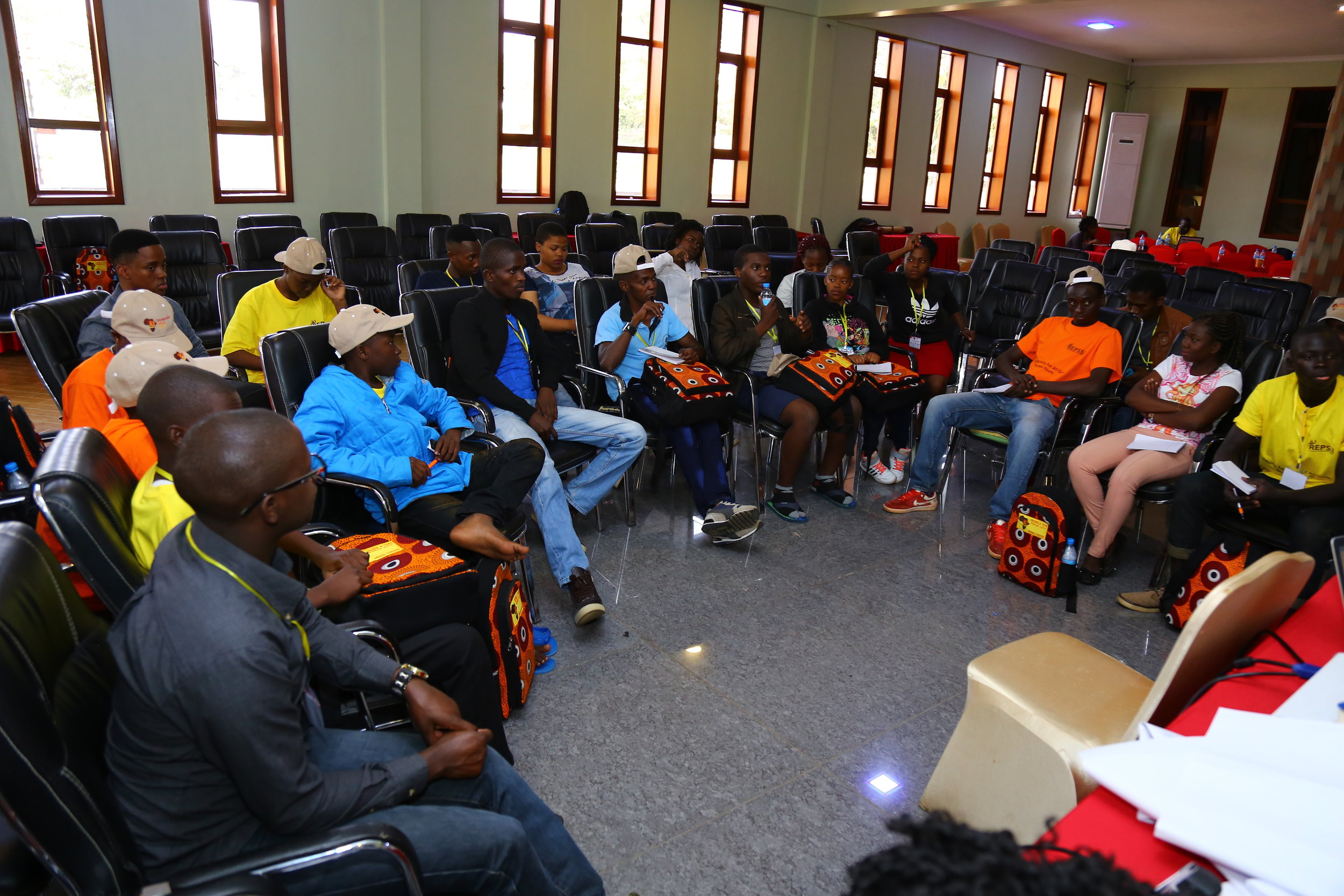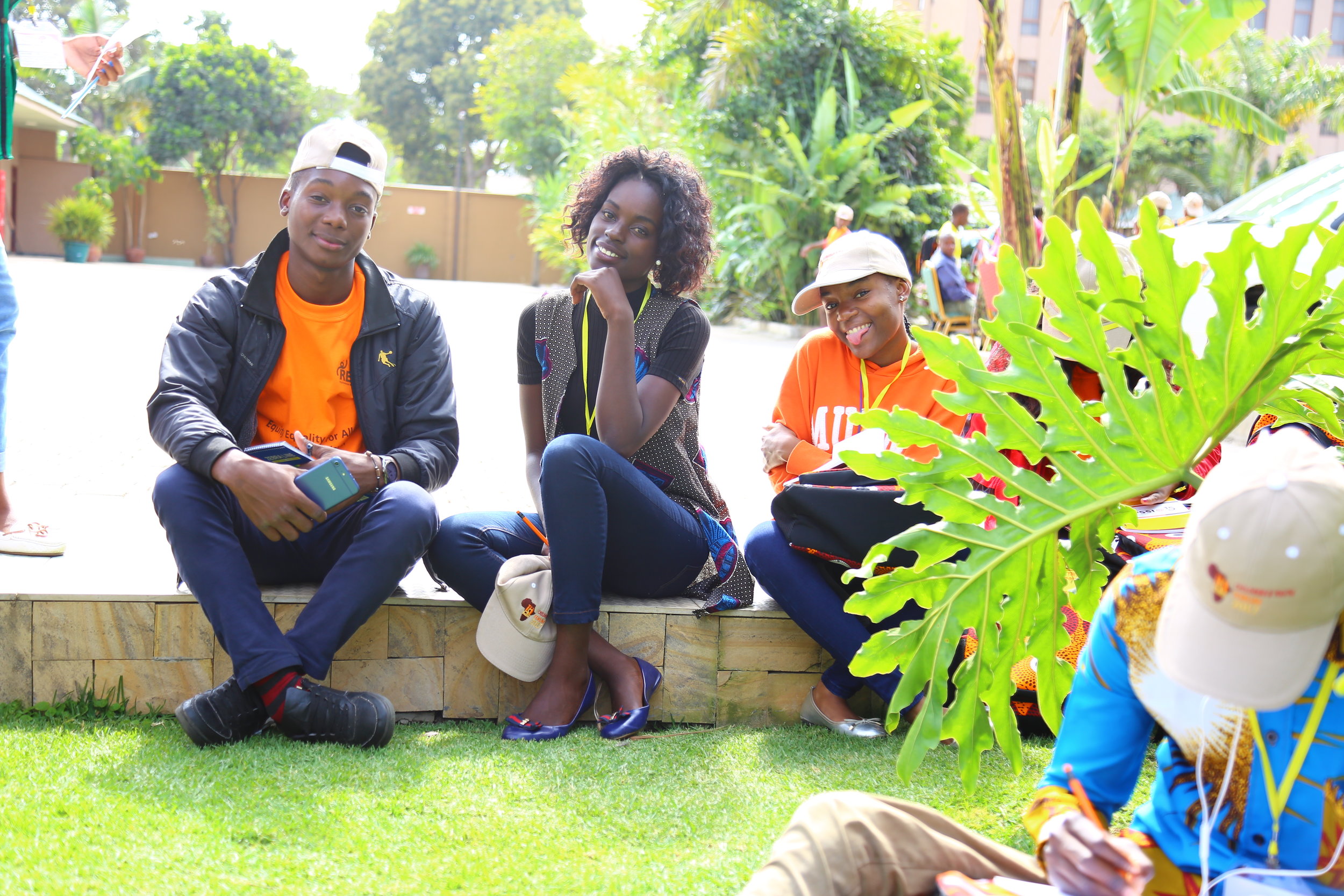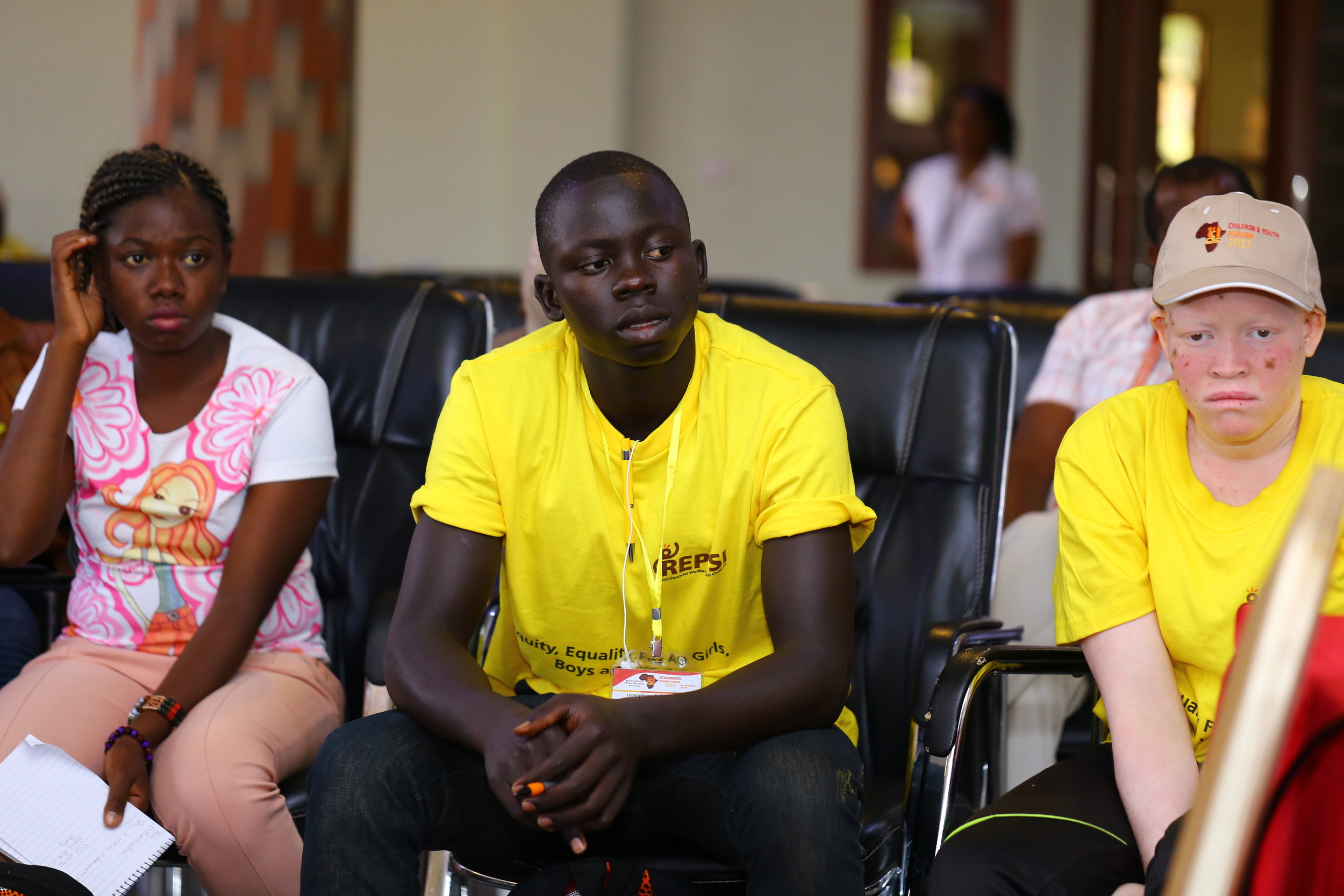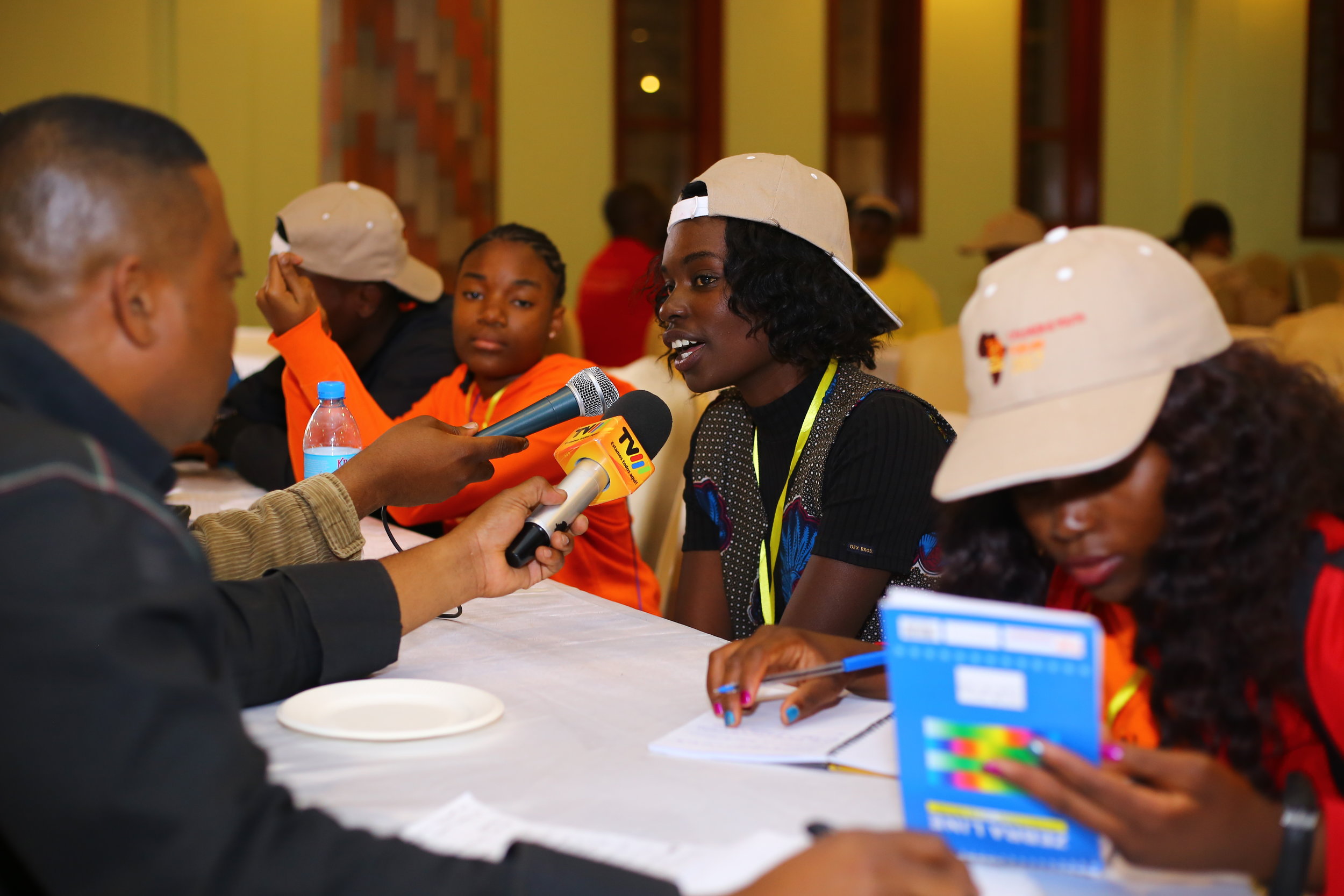The World Bank’s Africa Region and its Social Development Department are launching a Story Competition to identify positive role models for African youth that illustrate a #AfricaCAN spirit.
Putting Children First event calls for action to tackle child poverty
Despite important strides in the fight against poverty over the past two decades, child poverty remains widespread and persistent. A three-day international conference from 23rd to the 25th of October in Addis Ababa, Ethiopia, aims to engage policy makers, practitioners and researchers in identifying solutions for fighting child poverty and inequality in Africa, and inspiring action towards change. More detailed information about the themes, key questions to be considered and the conference objectives can be found in the conference concept note: Putting Children First - Concept note.pdf
Call to Action: The conference will conclude with a commitment to action towards fighting child poverty and inequality in Africa. Action steps will be summarised in a Call for Action. To give feedback on the draft Call for Action email Richard Morgan, Co-Chair of the Global Coalition to End Child Poverty: r.morgan@savethechildren.org.uk.
Putting Children First - Communique for consultation.pdf
For more information click here, or follow and contribute to the conference debate on Twitter by using #PuttingChildrenFirst.
UNICEF and PATA webinar series from the PATA 2017 Continental Summit
From the 23rd to the 25th October 2017, UNICEF and PATA are hosting a webinar series to share presentations from the PATA 2017 Continental Summit. These presentations will include plenary presentations and country-led solutions to identifying, treating and caring for children and adolescents living with HIV and affected by HIV.
The links to the webinar are below:
October 23rd 9-10am EST and 3-4pm JHB
October 24th 9-10am EST and 3-4pm JHB
October 25th 8.30-9.30am EST and 2.30-3.30pm JHB
For more information contact Jessica Rodrigues at jerodrigues@unicef.org
Highlights from the Children and Youth Pre-Psychosocial Support Forum, 2017
RIATT-ESA partnered with REPSSI to co-host the Children and Youth Forum 2-3 September 2017, ahead of the Psychosocial Support Forum. The pre-conference brought together more than 80 young delegates between the ages of 12 and 25 years, from 13 eastern and southern African countries including: Tanzania, Angola, Botswana, Kenya, Lesotho, Malawi, Mozambique, Namibia, Swaziland, South Africa, Uganda, Zambia, Zimbabwe. Most of the delegates were students but among them were former child brides, student leaders, peer educators, junior journalists, community mobilisers, and living with HIV and disabilities.
Youth Discussions
The youth delegates discussed through facilitated dialogues and presentations their observations, experiences, perspectives and ideas on key development issues. Guest of honour Jake Glaser brought a strong message of courage in fighting stigma related to HIV, calling on the youth to not let their circumstances or heath define who they are. True to form, the youth asked some very personal questions! The messages empowered the youth to use the opportunity to take action by calling governments and civil society to support and protect children in Africa.
Click here to watch Jake’s Key note address to the youth: https://www.youtube.com/watch?v=Njz-2TwYerk
Some Issues identified by the youth as needing urgent attention include:
- Difficulties encountered by teenagers who become pregnant in being re-admitted and staying in school to complete their studies
- Violence against children, especially rape of girls
- Family and cultural pressures on girls to marry young
- Income opportunities for former child brides so they can support themselves and their children
- The challenges of growing up with HIV including treatment adherence and dating
- Pressures on young boys to make incomes to support their families at the expense of their education
- The increasing use of drugs among in and out of school boys
- The broadening of the formal school curriculum to include music and sport as career options
- Tokenism versus meaningful participation of young people in policy and programme development
Social Media
Harnessing the power of social media for advocacy was a key theme at the pre-conference. After going through a capacity building session the youth submitted a blogs which will be shared through the RIATT-ESA website until an independent platform can be set up. Partners will be invited to link and further disseminate them. The blogs will be judged by an independent panel and two winners will be awarded a tablet which will go a long way to support their advocacy efforts.
Follow @RIATTESA on twitter for updates and highlights posted during the Children and Youth Forum.
RIATT-ESA deeply appreciates the support of its partners, without whom this event would not have succeeded. A special thank you to Jake Glaser and his team from EGPAF, and Deborah Ewing and her team at the AIDS Foundation of South Africa
Zambian teen fights for the rights of children
Margaret Musonda’s campaign against the abuse of children in Zambia has drawn comparisons with globally renowned children’s rights activist, Pakistani Malala Yousafzai.
Barely 17 years old, Musonda is tipped to become Zambia’s future president.
Orphaned at the age of seven, the Grade 12 pupil at Keemba Secondary School, Monze District, has become the face of the struggle against the abuse of children and a source of hope for millions of minors in the sub-region, which is infamous for the high prevalence of child marriages.
“Campaigning for the rights of children has been a significant part of me. Being an orphan has prompted me to always put extra effort into what I do,” said Musonda, the only girl among three children their parents left at a young age.
“Children endure the most violations. We have to stand up and work together. It must start with us,” the teenager said in Johannesburg this week. She aspires to enter politics later in life.
Part of her advocacy is to stop child marriage, which is associated with high levels of poverty.
In Zambia, it is seen as a rural phenomenon, although there are reported cases of child marriages in urban areas.
Poverty is believed to lead many parents to take their young daughters out of school to offer them in marriage to older men in exchange for lobola.
“The involvement of parents and relatives in the defilement and rape of children is alarming. It is disheartening that, most of the time, such violations are swept under the carpet, which compounds the suffering of the children,” she said.
"It has to be done"
Musonda is a chairperson of the Choongo Chiefdom Child Protection Council and a trainee reporter with a local community radio station.
The council consists of girls and boys, and was formed in 2015 with support from nongovernmental organisations, traditional leaders and the district’s education board.
Musonda and her group have started a radio programme to highlight violations of children’s rights in the community and to campaign to end child marriages.
Community leader Betty Mwiza said: “I am personally astonished at Musonda’s confidence to deliver the key messages and at her in-depth knowledge on child protection issues.
“The way she shares her thoughts and views amazes everyone who listens to the programmes.”
Musonda recently represented children at the announcement of a campaign to stop child marriages and violence against children in southern Africa.
This was an initiative by Christian humanitarian organisation World Vision and other development organisations.
Musonda said advocating children’s rights was rough terrain because of centuries-old traditional beliefs and fear of victimisation.
“It is scary at times,” she conceded. “However, it has to be done.
“We have systems in place to report and investigate a case anonymously.
"Some children are scared, but I encourage them to report the violations. We have been taught how to report. There are centres established for that purpose.
"We can also report to teachers or neighbours,” said Musonda.
Often, the aggressors are known to the victims.
Florence Mulenga, sponsorship facilitator at World Vision Zambia, said they were allowing children to make their voices heard.
“We are seeing the results of this process as children are growing in confidence and self-esteem,” she said.
The campaign has led to laws being put in place to address child marriage and abuse.
They include the Marriage Act, which has set the legal age for marriage at 18 for women and 21 for men.
The penal code makes sexual intercourse with someone who is younger than 16 an offence in Zambia.
However, these provisions rarely apply in customary law, where marriage can take place from puberty.
It is common for girls to be married off or have sexual relations when they are younger than 16.
Musonda pointed out that, while the laws were in place, they were not being implemented, leading to many culprits escaping the might of the law.
17 September 2017 - By Arnold Mulenga in Lusaka
Source: news24
HEARD 2018 PhD Scholarship Opportunity
HEARD is offering six PhD scholarships (full-time) which will be available to students conducting research in one of the following areas: Health Systems Strengthening; Health Economics; Health Financing; Unsafe Abortions; Contraception; Universal Health Care Financing; Gender-based Violence.
Click here for more information on how to apply.
An additional six PDH scholarships on Sexual and Reproductive Health and Rights/Young Key Populations will be awarded to students undertaking research focusing on key populations in Africa.
Click here for more information on how to apply.
Deadline for applications is extended to 23 August 2017.
Turning Up The Volume On Children & Families Living With HIV And AIDS
An important component to ending AIDS as a public health threat by 2030 is ensuring that the voices of children and parents affected by the epidemic are heard. In the fight to end AIDS no arguments are more persuasive than those of the children and families affected by the disease. A blog by Florence Anam, of the International Community of Women Living with HIV, highlights several examples and steps to amplify young people voices in the fight against HIV and AIDS.
Click here to read to full blog
African Union Press Statement on Ending child Marriages
The Peace and Security Council of the African Union (AU), dedicated its 692nd meeting held on 13 June 2017, to an Open Session on the theme: “Ending Child Marriages”.
During the Peace and Security Council of the African Union (AU), concern was expressed over the fact that cases of child marriages and other forms of abuses to children, particularly young girls, have significantly been on the increase in a number of countries in Africa. Member states were urged to adopt the universal minimum marriage age of 18 years and the AU was requested to take the necessary steps to ensure enhanced awareness raising and civic education campaigns on ending abuse and exploitation of children, including child marriages. In the same context, Council stressed the importance of engaging traditional and religious leaders, with a view to raising their awareness of the need to urgently end harmful practices against children, particularly child marriages. In this respect, Council requested the Commission to dedicate more activities to Ending Child Marriages in Africa, with the active participation of traditional and religious leaders, as well as members of Parliament.
Click here to download the full Press Statement
Call for book chapters- Adolescence and HIV in Eastern And Southern Africa
HEARD, in partnership with UNAIDS, UNDP and Swedish International Development Cooperation Agency (Sida), proposed a new and engaging book 'Adolescence and HIV Prevention in Eastern and Southern Africa: Emerging Evidence and Intervention Strategies'. HEARD and partners are now seeking innovative contributions to this book project.
This book will address current perspectives in HIV prevention with adolescent populations. The aim of the project is to bring together leading social scientists, public health experts, policy makers and the HIV affected community to translate recent momentous advances into action that will address HIV prevention gaps in adolescents in eastern and southern Africa. This project will welcome public health and social science based contributions offering new thinking, fresh approaches or evidence-based findings to enhance and accelerate HIV prevention.
Call for Youth Voices for #ActionAgainstPoverty on Nelson Mandela Day
Nelson Mandela International Day commemorates the lifetime of service Nelson Mandela gave to South Africa and the world. It was launched on his birthday, 18 July, in 2009 via a unanimous decision by the UN General Assembly. The Nelson Mandela Foundation is dedicating this year's Mandela Day to Action Against Poverty.
It has been widely acknowledged that poverty exposes children in poor developmental outcomes, emotional issues, higher risk of violence and higher risk of HIV infection. Family poverty significantly limits households’ capacity to protect children against the effects of HIV and AIDS. Once HIV enters the household, it pushes affected families deeper into poverty, with severe consequences for children’s wellbeing. Supporting children through their families requires making family poverty a central policy concern. Family poverty and gender inequality must be tackled to improve the outcomes for children affected by HIV and AIDS. (JLICA 2009.)
This International Nelson Mandela day we invite young people to join us on #YouthAction by posting or sending us a brief video blog, voice note, or written blog about what they are doing, or what they would like to do for Nelson Mandela International Day. The blogs can be posted on Facebook or twitter using the hashtag #YouthAction, #MandelaDay #ActionAgainstPoverty or sent it via email to Angelita on angelita.silva@repssi.org.






